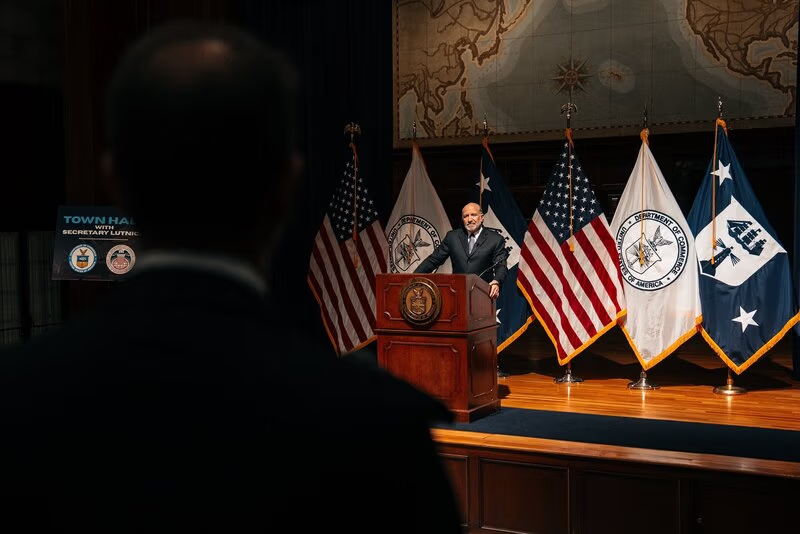Trade tensions between the United States and key emerging markets deepened this week as US Commerce Secretary Howard Lutnick urged India and Brazil to “react correctly to America” by opening their markets to US goods. His remarks come in the wake of steep tariffs imposed by the Trump administration, which have escalated friction with two of the world’s largest developing economies.
In an interview with NewsNation, Lutnick said Washington is prioritizing trade disputes with what it calls the “big ones” — Switzerland, Brazil, and India. “These are countries that need to really react correctly to America. Open their markets, stop taking actions that harm America, and that’s why we’re off sides with them,” he stated.
India and Brazil have faced sweeping new tariffs from Washington. In August, the US slapped a 50% duty on all Brazilian imports, citing political grievances over Brazil’s treatment of former president Jair Bolsonaro. For India, the tariff regime is twofold: a 50% levy on exports to the US plus an additional 25% penalty for continued purchases of Russian oil.
The measures have triggered heated negotiations. A delegation led by Indian Commerce and Industry Minister Piyush Goyal visited Washington from September 22 to 24, holding talks with US Trade Representative Ambassador Jamieson Greer and US Ambassador-designate to India Sergio Gor. According to a statement by India’s Commerce Ministry, the discussions were “constructive,” with both sides agreeing to continue engagement toward an “early conclusion of a mutually beneficial trade agreement.”
Indian officials also held meetings with US businesses and investors. The ministry noted that “business leaders reposed confidence in the India growth story and expressed their desire to intensify their business activities in India.”
Meanwhile, the standoff with Brazil has deepened into a broader diplomatic crisis, with President Trump justifying the tariff hike as a response to what he called a “witch hunt” against Bolsonaro.
Analysts warn that unless Washington and its partners de-escalate, supply chains could be disrupted further, weighing on global trade flows. “India and Brazil will need to carefully calibrate their responses, balancing domestic economic interests with the risks of being locked out of the lucrative US consumer market,” said a senior trade analyst at Eurasia Group.
With both India and Brazil reluctant to be seen bowing to pressure, the coming months will determine whether talks lead to compromise or extend into a prolonged trade standoff.






